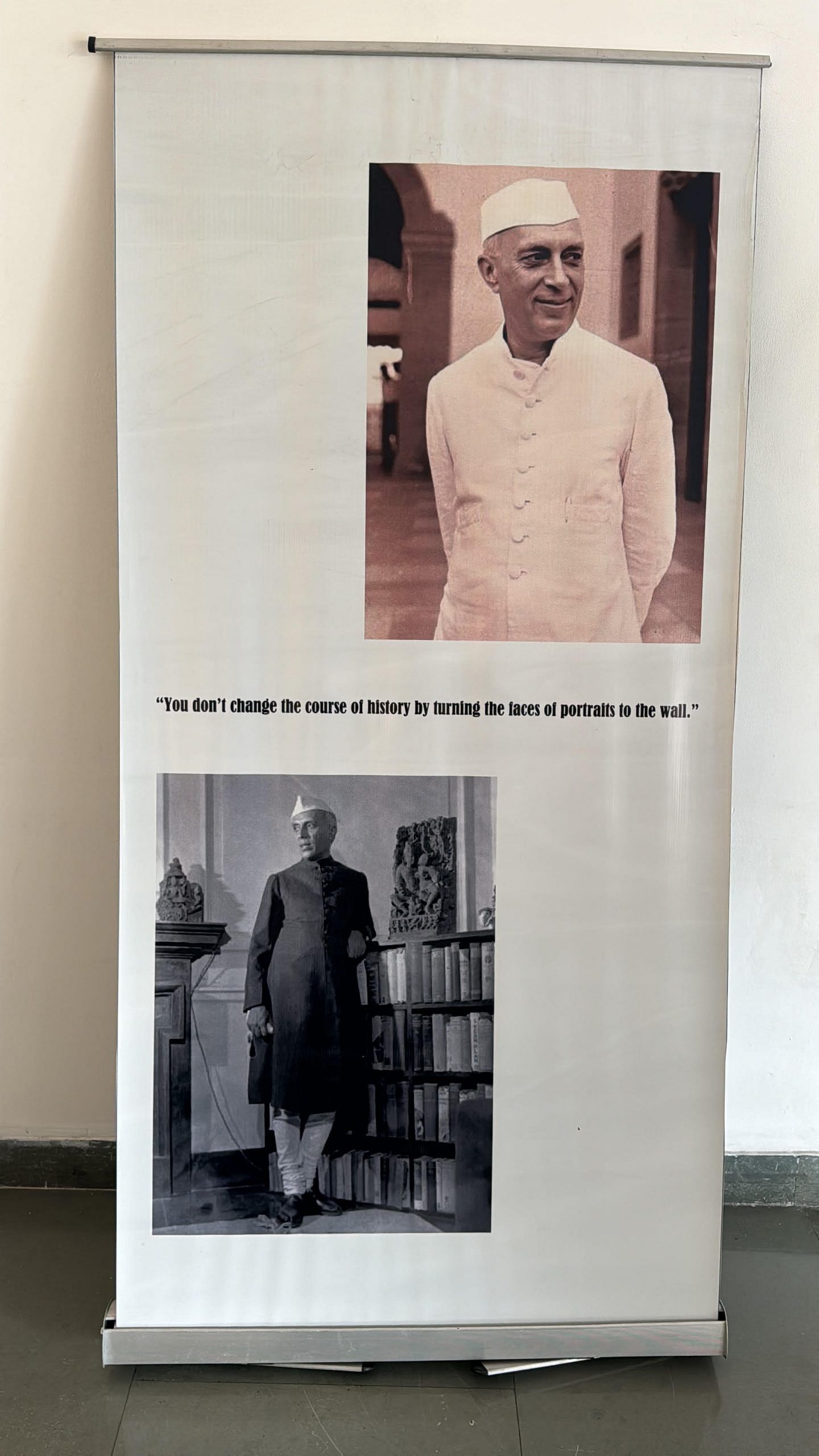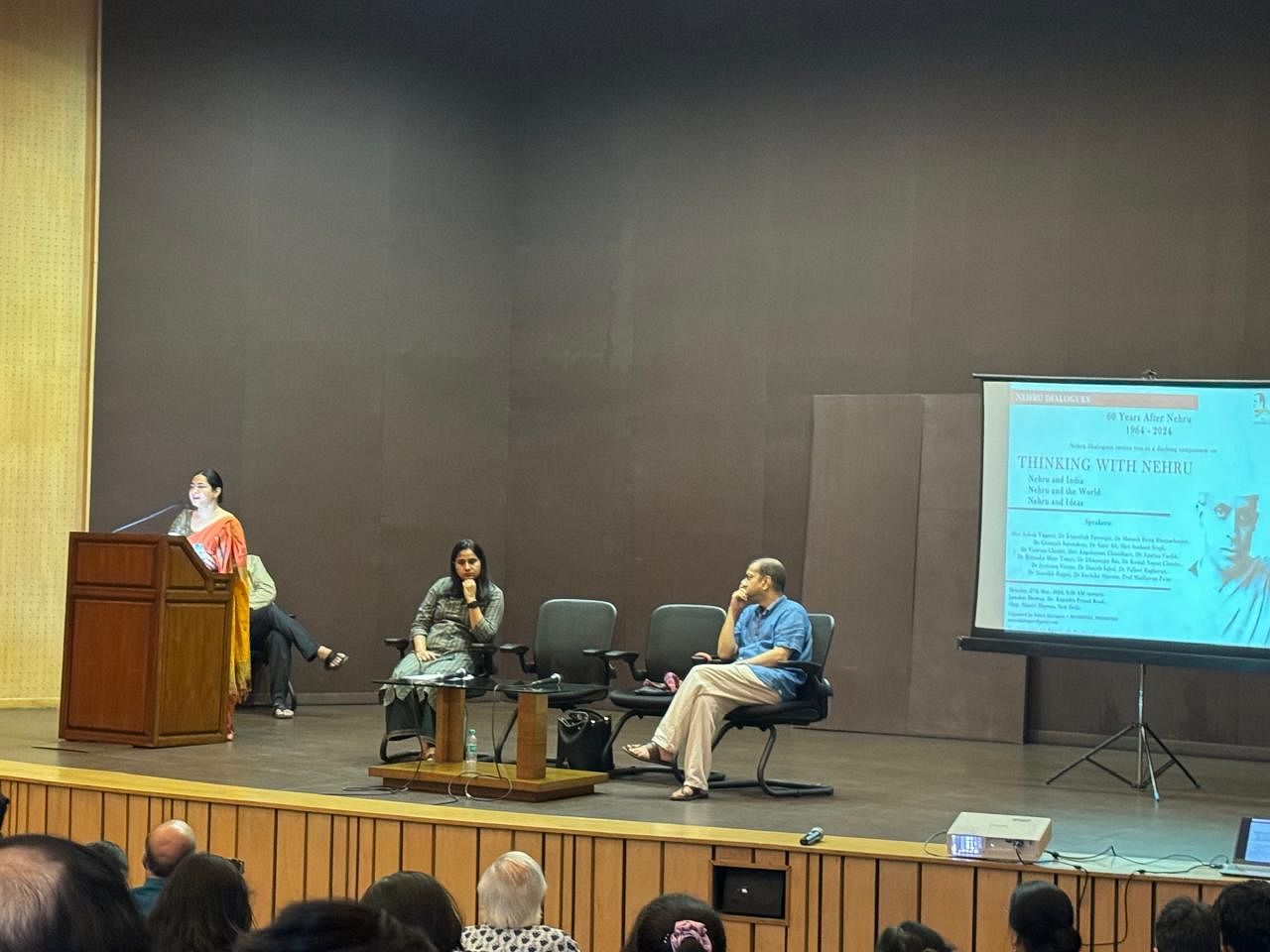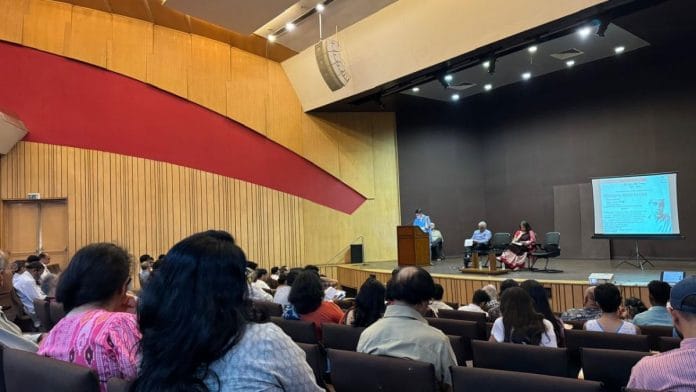New Delhi: Jawaharlal Nehru’s India was a land where myth and modernity coexisted. His India was both a dream and a vision. With this thought in mind, political science scholar and author Manash Firaq Bhattacharjee urged people not to bracket Nehru’s ideas in fixed binaries.
“To keep any ‘idea’ alive, to be able to think it without doing violence to its imaginative possibilities, ideological fixities need to be avoided,” said Bhattacharjee in his lecture, ‘What Makes India an Idea’, on the 60th death anniversary of the country’s first prime minister on 27 May. To mark the day, Nehru Dialogues in collaboration with the Rajiv Gandhi Foundation held a day-long symposium at New Delhi’s Jawahar Bhawan.
Professors, lecturers and research scholars from the University of Delhi, Aligarh Muslim University, and Jawaharlal Nehru University among others explored Nehru the man, the leader, and the face of an independent India. His views on caste, women empowerment and his role in shaping the country were scrutinised through more than 15 lectures.
Bhattacharjee who opened the symposium spoke about nationalism and Nehru’s idea of India. In this, Nehru and Rabindranath Tagore held common views. In 1921, Tagore wrote in a letter that “the true India is an idea”. In his book, The Discovery of India, Nehru, too, called India “an idea”.
“Indian history is a history of many religions and one of its key aspects is religious, ethnic and cultural variability,” he said. And within the modern state, Nehru “sought to coordinate” different values— democracy, religious tolerance, economic development and cultural pluralism.

Also read: Don’t be a reel-recording bystander—trauma doctors show how to administer first aid
Betrayal and failures
Often, commemorative events tend to be celebratory, overlooking the person’s fumbles, foibles and failures. But this event was not that. Under the scrutiny of some of the country’s top academicians, Nehru’s missteps–and ‘betrayals’ were also discussed.
Through her paper, ‘No Plans Land: Women’s question in the Nehruvian Era’, History scholar from JNU Ruchika Sharma chose to examine whether the prime minister’s ideals translated into actionables on the ground. She did this by studying the five-year plans under Nehru. Her conclusion: “…Despite giving women socialists such as Durgabai Deshmukh the freedom to seek solutions to the women’s question, it was still untranslatable into a proper policy.”
Vanessa Chishti, an associate professor at Jindal Global Law School, was much harsher when she sought to view Nehru, his actions, and their consequences from the Kashmir lens.
Kashmir was much more than the persistent tale of “friendship, enmity and betrayal” between Jawaharlal Nehru and former chief minister Sheikh Abdullah.
“Kashmir has been treated as an acid test of Nehru’s commitment to democracy, secularism and constitutional government. I ought to say that Nehru fails the test,” said Chishti. The audience was immediately alert.
Chishti began her lecture on the friendship and animosity between Nehru and Abdullah. But 10 minutes into her speech, she moved on to the social structure of Kashmir in the 1940s.
“I won’t be speaking about Nehru, Abdullah and Kashmir of the 1940s. I tried but my heart is not into it,” she said. Nehru’s “betrayal” in not holding the promised plebiscite in Kashmir still rankles 60 years after his death.

Nehru’s Army and India
All through the day, students and guests came to attend different lectures. Among the speakers was journalist and author Sushant Singh who spoke on ‘Nehru, Army and the Nation’. He credited the former prime minister for successfully managing the military, keeping it out of politics and preserving democracy.
The British army was formidable. According to Singh, nearly 40 per cent of colonial India’s central government budget between 1857 and 1947 was spent on the British army alone.
“This was the kind of legacy that India inherited,” Singh said as he went on to draw comparisons between Pakistan and India. While independent India escaped military rule, Pakistan embraced it.
The Indian state under Nehru had taken “specific coup-proofing measures” against the military, according to Singh.
He ended his lecture with a question— “Would India have become Pakistan without Nehru?”
Among the other speakers was Kamal Nayan Chaube who presented his paper, ‘Nehru and Adivasis: Contradictions of Modernization, Conservation and Assimilation’.
He started by giving the example of Rani Gaidinliu, the political and spiritual leader of the Rongmei tribe in Northeast India. She led the revolt against British rule in India. Gaidinliu was jailed for 18 years.
“During her time in the jail, Nehru wrote in the Congress bulletin and international publications to bring attention towards a Naga woman who fought against the British army,” said Chaube.
Calling Nehru a “secular” man, he questioned the “Right-wing tendencies” within the Congress. Nehru did not pay much attention to what was happening within his party, he added.
The scope of the symposium and the breadth of topics covered served to remind the audience that political leaders get plenty right but can also stumble.
“This is what Nehru’s India would have been like. Anyone was allowed to speak, criticise and voice dissent,” whispered one young man in the audience to his colleague.






